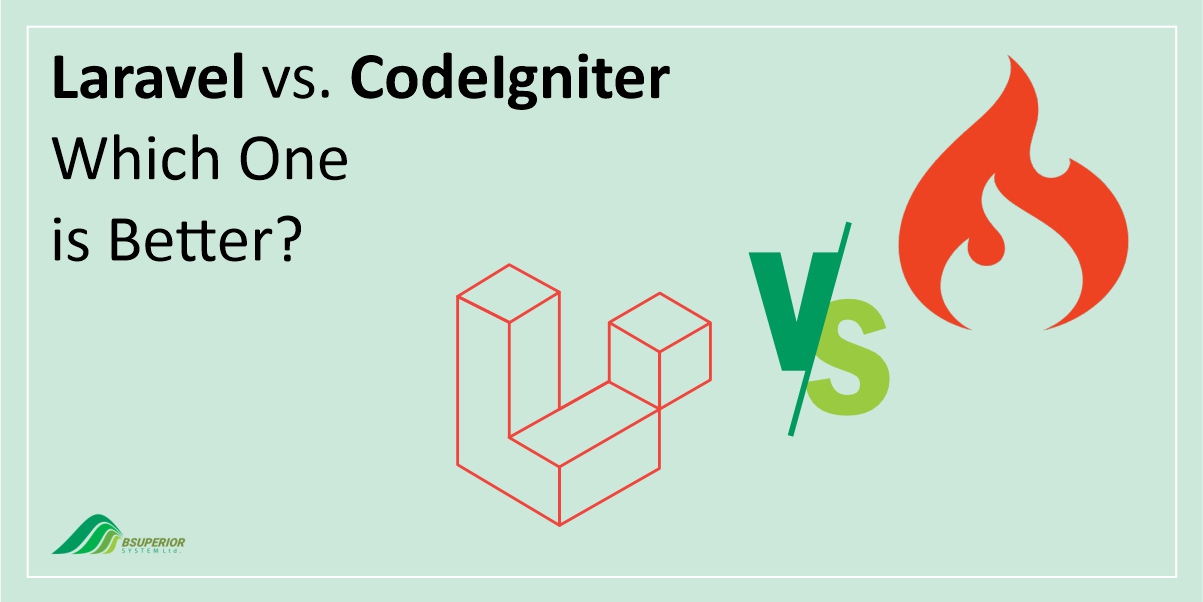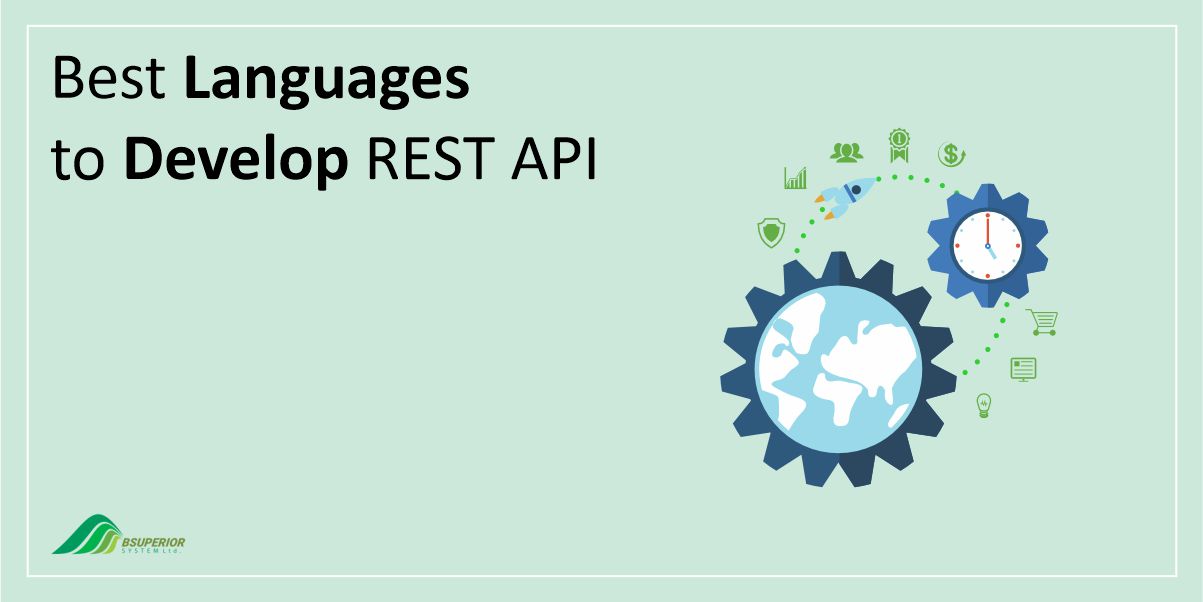Laravel vs. CodeIgniter: Which One is Better?

Table Of Content
- What is Laravel?
- What is CodeIgniter?
- Laravel vs. CodeIgniter at a Glance
- CodeIgniter vs. Laravel: Features
- CodeIgniter vs. Laravel: Performance
- CodeIgniter vs. Laravel: Modularity and Scalability
- Laravel vs. CodeIgniter: Security
- CodeIgniter vs. Laravel: Testing
- CodeIgniter vs. Laravel: Error Handling
- Laravel vs. CodeIgniter: Similarities and Differences
- CodeIgniter vs. Laravel: Which One to Choose?
- Final Words
CodeIgniter and Laravel are two of the most popular PHP frameworks. In what follows, we will take a look at CodeIgniter vs. Laravel and compare these two on a number of important aspects such as features, performance, testing, and security. So, if you are wondering which framework to pick, this blog post will come in helpful.
What is Laravel?
Laravel, an open-source PHP framework, simplifies the development of powerful applications by reducing the amount of code required.
Using a model-view-controller architecture, Laravel provides a comprehensive packaging system and a dedicated dependency manager.
Applications that are created using Laravel are highly scalable and have codebases that are simple to maintain.
Laravel Development provides developers with a variety of other features such as an extensive library with reusable components, an array of web development tools, command line interfaces, and object-relational mapping, among other features.
Pros
- Comprehensive documentation
- Compatibility with mail services
- Reduction in redundant tasks
- Accelerated product development process
- Superior handling of exceptions
- Seamless database migration
- Integration with caching systems
- Enhanced security measures
- Rapid debugging capabilities
- Automated testing procedures
Cons
- Lightweight Structure: Laravel, while having fewer features compared to some other frameworks, can make the process of constructing extensive web applications somewhat laborious.
- Limited Support: The support provided for Laravel is not as extensive as that for some other frameworks.
- Framework Upgrades: Laravel updates can occasionally lead to issues with previous versions of the software due to the introduction of changes that may not be compatible with the older versions.
What is CodeIgniter?
CodeIgniter is an open-source, minimalist PHP framework designed for the creation of dynamic and fully operational web pages. It comes with a comprehensive set of libraries that developers can use to carry out common and repetitive tasks.
This framework is ideal for developers who are in search of a straightforward toolkit to develop comprehensive web applications.
Pros
- Quick setup process
- Safe and secure platform
- Intuitive user interface
- Support for migration services
- Strong community backing
- Development driven by testing
- Efficient error management
- Customizability of websites
- Lightweight structure of the framework
Cons
- Code Maintainability: CodeIgniter does not place a strong emphasis on code maintainability. As a result, developers need to invest additional time and effort to maintain or update the code.
- Modern Features: CodeIgniter has a relatively limited set of modern features compared to newer frameworks. Although it continues to receive updates, it may not have the latest features and enhancements found in frameworks like Laravel or Symfony.
- Built-in Libraries: The number of built-in libraries in CodeIgniter is fewer compared to other frameworks. While it covers common tasks, developers may need to rely more on third-party libraries to handle specific requirements.
Read More: DJANGO VS. LARAVEL: WHICH ONE IS BETTER?
Laravel vs. CodeIgniter at a Glance
Laravel and CodeIgniter are popular PHP frameworks that offer developers many features and functionalities. Here’s a table that compares their main features:
| Aspect | Laravel | CodeIgniter |
| Performance | Relational object-oriented, great option because of its overall performance | Object-oriented, known for its speed |
| Modularity | Has a built-in modularity | Lacks a built-in modularity feature; Developers must use extensions |
| Security | Has passwords and built-in authentication features | Has a built-in authentication library called Shield |
| Testing | Comes equipped with a built-in Unit Testing feature | Does not have a native Unit Testing feature |
| Error Handling | Has a built-in error-handling system that automatically identifies and logs errors | Has a straightforward error-handling system in which errors are displayed during development and testing |
CodeIgniter vs. Laravel: Features
Both these PHP frameworks offer developers several essential features.
CodeIgniter Features
CodeIgniter provides developers with a number of key features and functionalities.
- Simplified Development Process: CodeIgniter is ideal for straightforward web solutions due to its ease of use, reliability, and efficiency. Its simplicity makes it more comprehensible than most PHP languages.
- Minimal Errors: The ease of use of CodeIgniter leads to better error handling. It not only limits the number of errors due to its simplicity but also has an interface and an error logging class for error detection and rectification.
- Community Support: CodeIgniter has a vibrant community of web developers and users. The CodeIgniter forum is one of the most active spaces, with discussions divided into several types.
Laravel Features
Laravel offers a variety of features to deliver a robust and aesthetically pleasing web experience.
- Blade Template Engine: Laravel’s lightweight Blade templating engine allows for the creation of beautiful layouts, integrated CSS, and robust JavaScript structures.
- MVC Architecture: Laravel’s MVC architecture separates appearance and business logic, which results in accelerating development.
It improves documentation and includes various built-in features. Also, it enhances security and scalability, and boosts performance. - Data Migration: Laravel’s migration system allows for changes to the database structure using PHP code. Laravel schema builders enable database migration without memorization.
This automated process allows for seamless migration without interruption or loss. - Built-in Packages: Laravel includes several built-in packages that help maintain clean code.
- Security: Security is a crucial feature of Laravel. It manages your website’s security internally through its built-in security system.
Laravel also prevents hackers from remotely installing malicious code on your server by intercepting all requests and processes.
CodeIgniter vs. Laravel: Performance
PHP is more known for its stability than its speed. As a result, CodeIgniter and Laravel are both a bit slower compared to other frameworks. However, there are some noticeable differences between the two frameworks in this regard.
CodeIgniter Performance
CodeIgniter is a lightweight framework with a lean core. This means that it only requires a few small libraries to run, which makes it faster than Laravel. CodeIgniter is also marginally quicker than Laravel in terms of execution speed.
However, the performance of CodeIgniter can vary depending on the project factors, such as the number of concurrent users.
Laravel Performance
Laravel is a more complex framework with a larger codebase. This makes it slower than CodeIgniter, but it also gives Laravel more features and functionality. To put it another way, while CodeIgniter is faster than Laravel, Laravel is more powerful.
Laravel can be sped up by optimizing its performance, such as by caching config files and routes, limiting unused libraries, and using the JIT compiler.
CodeIgniter vs. Laravel: Modularity and Scalability
Both CodeIgniter and Laravel excel in terms of scalability. But when it comes to modularity, Laravel has the upper hand.
CodeIgniter Modularity
CodeIgniter does not have a built-in modularity feature. Developers who want to use modules in CodeIgniter must use extensions. This can be more complex and time-consuming than using the built-in modularity feature in Laravel.
Laravel Modularity
On the other hand, Laravel has a built-in modularity feature that allows developers to divide a large project into smaller, more manageable modules. This feature enables developers to work on each module independently.
CodeIgniter Scalability
In CodeIgniter, you have the flexibility to extend its helpers, class extensions, libraries, and hooks. Additionally, CodeIgniter allows you to create core system classes, replace or remove standard functions, and customize controllers in any way necessary to achieve extensibility.This capability enables you to enhance scalability by caching modifications without adversely impacting performance.
Laravel Scalability
Laravel also offers the flexibility to extend its core components as needed, allowing you to modify or augment them to suit your specific requirements. Laravel’s scalability features make it an ideal choice for large-scale applications.
Balancing HTTP requests can be efficiently achieved with the HAProxy load balancer. Moreover, a token-based authentication approach eliminates the need to manage the session state, simplifying the scalability process.
Additionally, by using advanced caching techniques and compatible technologies like MySQL and AWS, you can seamlessly scale Laravel applications to meet increased demands.
Laravel vs. CodeIgniter: Security
Authentication is a critical part of web security. CodeIgniter and Laravel both have their own authentication systems that are designed to be secure and flexible.
CodeIgniter Security
CodeIgniter’s built-in authentication library, Shield, is a secure and flexible way to implement authentication in web applications.
Shield offers a variety of features, including session-based authentication, personal access token authentication, role-based access control, and per-user permission overrides.
Read More: LARAVEL VS. SYMFONY: EXPERT GUIDE ON BEST PHP FRAMEWORK
Laravel Security
Laravel’s built-in authentication system, Laravel Sanctum, is a powerful and easy-to-use way to implement authentication in API-based applications.
Sanctum allows you to generate API tokens for each user of your application, which can be used to authenticate requests to your API.
CodeIgniter vs. Laravel: Testing
CodeIgniter Testing
CodeIgniter lacks built-in support for unit testing. Developers working with the CodeIgniter framework must rely on third-party unit testing tools to evaluate code quality and the application.
Laravel Testing
Laravel offers a built-in unit testing functionality known as PHPUnit, which enables developers to thoroughly assess the application code.
CodeIgniter vs. Laravel: Error Handling
Both CodeIgniter and Laravel have systems for error handling, but they manage log notifications differently.
CodeIgniter Error Handling
CodeIgniter has a straightforward error-handling system. All errors are displayed during development and testing, but none are shown in production.
CodeIgniter generates three types of messages, namely Error messages, Debug messages, and Informational messages. The error logging feature in CodeIgniter allows you to save errors as text files.
Laravel Error Handling
Laravel has a built-in error-handling system that notifies you of every error. It automatically identifies and logs errors and exceptions and sends the report to you for further action.
Laravel vs. CodeIgniter: Similarities and Differences
As two of the best PHP frameworks, Laravel and CodeIgniter share several important similarities while also having notable differences.
|
Features |
Laravel |
CodeIgniter |
|
PHP Framework |
Yes |
Yes |
|
MVC Architecture |
Yes |
Yes |
|
Open Source |
Yes |
Yes |
|
Active Record |
Yes |
Yes |
|
Modularity |
Built-in bundles |
Modular extension |
|
Database Schema Migration |
Database-agnostic migrations |
Limited support |
|
Template Engine |
Blade (built-in) |
No built-in engine |
Differences
Both Laravel and CodeIgniter are popular choices in the market. Let’s delve into some of the major differences between these two PHP frameworks.
- Modularity: CodeIgniter relies on third-party Modular Extensions for module creation and maintenance.
In contrast, Laravel offers built-in modularity features that allow developers to divide large projects into reusable modules called bundles, which can be shared across multiple projects. - Database Schema Migration: CodeIgniter lacks built-in support for simplifying database schema migration.
However, Laravel excels in this aspect with its database-agnostic migrations feature, facilitating seamless modification and sharing of database schemas. - Template Engine: While CodeIgniter doesn’t provide a built-in template engine, Laravel offers the Blade template engine.
This feature of Laravel enhances web application performance by providing an efficient and integrated templating solution. - Module Management: As CodeIgniter doesn’t support built-in modules, it relies on Modular Extensions for creating and managing modules. However, Laravel promotes module reuse and management as a core feature.
- Data Migration: Laravel offers broader support for data migration formats while CodeIgniter has limitations in this regard.
Similarities
Regardless of their many differences, CodeIgniter and Laravel share a number of similarities.
- PHP Framework: Both CodeIgniter and Laravel operate as PHP frameworks, with PHP serving as the foundational language for both.
- MVC Architecture: Both CodeIgniter and Laravel follow the MVC development structure.
- Open Source: CodeIgniter and Laravel are both open-source PHP frameworks, making their source code readily available on platforms like GitHub. This open nature allows developers and the wider community to modify and adapt these technologies to suit specific project requirements.
- Active Record: Both CodeIgniter and Laravel support the active record database pattern. This pattern facilitates the retrieval, insertion, and modification of database information with minimal scripting effort.
CodeIgniter vs. Laravel: Which One to Choose?
Both CodeIgniter and Laravel are powerful PHP frameworks that can be used to build a variety of web applications.
However, they have different strengths and weaknesses, so the best framework for a particular project will depend on the specific requirements of the task at hand.
Despite this, Laravel’s elegant and robust features give it a slight edge over CodeIgniter, leading many to regard it as one of the top PHP frameworks.
Read More: WHY CHOOSE LARAVEL FRAMEWORK FOR YOUR BUSINESS APPLICATION
Go with CodeIgniter if
CodeIgniter can be the right choice for your project if you need the following:
- Efficiency with Less Code: CodeIgniter is known for delivering great outcomes with fewer lines of code. It enhances web app development by eliminating the need for third-party libraries.
- Straightforward, Error-Free Setup: CodeIgniter’s linear and flexible folder structure simplifies PHP syntax, enabling rapid web application creation without syntax errors. It’s thus ideal for simple and scalable websites.
- Quicker Performance: With a faster execution rate and development process, CodeIgniter outpaces Laravel, making it suitable for building speedy, efficient websites.
- Beginner-Friendly: If you’re a novice developer aiming to build an app, CodeIgniter is an excellent choice as it keeps everything concise and streamlined.
Go with Laravel if
In the following scenarios, Laravel is the better option:
- Large, Complex Websites: Laravel is a powerful and scalable framework that can handle large and complex websites with ease.
- Numerical Computation: Laravel is a good choice for websites that need to perform numerical computations, such as stock or trading websites.
It has a built-in caching system that can speed up computations, and it also has a powerful templating system that can be used to create complex layouts. - Fast Development: Laravel is one of the fastest PHP frameworks available. It has a number of features that can help you develop your website quickly, such as pre-built templates and a robust community.
- High Security: Laravel has a built-in security system that can help you protect your website from attacks. It uses the BCrypt hashing algorithm to encrypt passwords, and it also forbids the storage of plaintext passwords in the database.
- Experienced Developer: Laravel is a complex framework, so it is a good choice for experienced developers who are familiar with its features and functionality.
Final Words
In this blog post, we tried to provide you with a detailed comparison of two of the most popular PHP frameworks, hoping that it will help you come to a better decision on which framework to choose.
To sum it up, we can say that Laravel is a more advanced framework that offers seamless updates and integration. That’s why, Laravel is often considered to be the better framework.
But bear in mind that the best choice for a particular case will mainly depend on the specific requirements of the project.
We value your input and believe this content may enhance our services. However, it's under review. If you see room for improvement, please use the "Report an issue" button below. Your feedback helps us excel.
Contact us today at –– and speak with our specialist.




